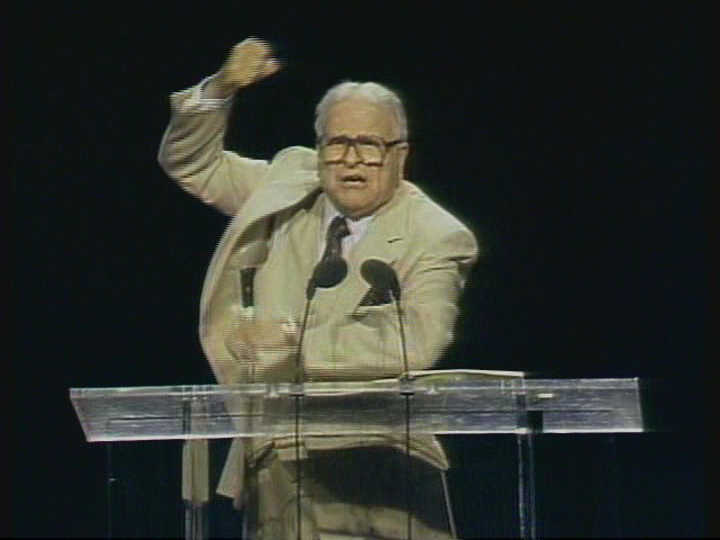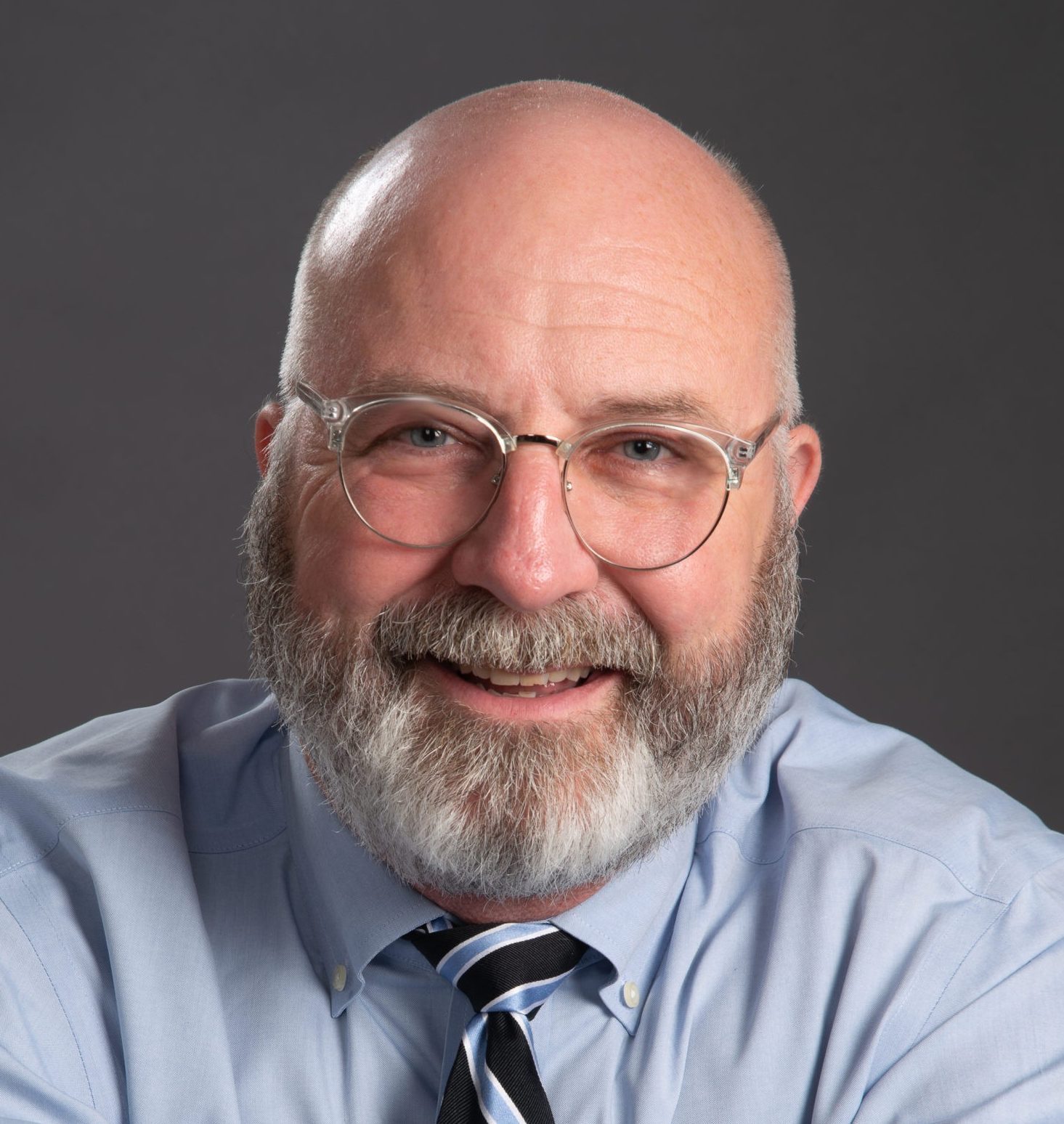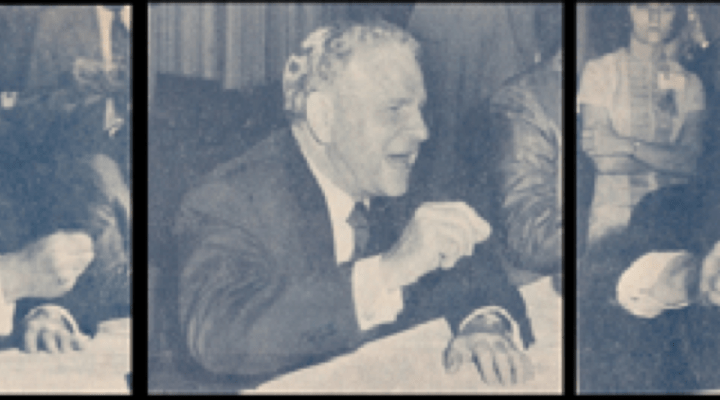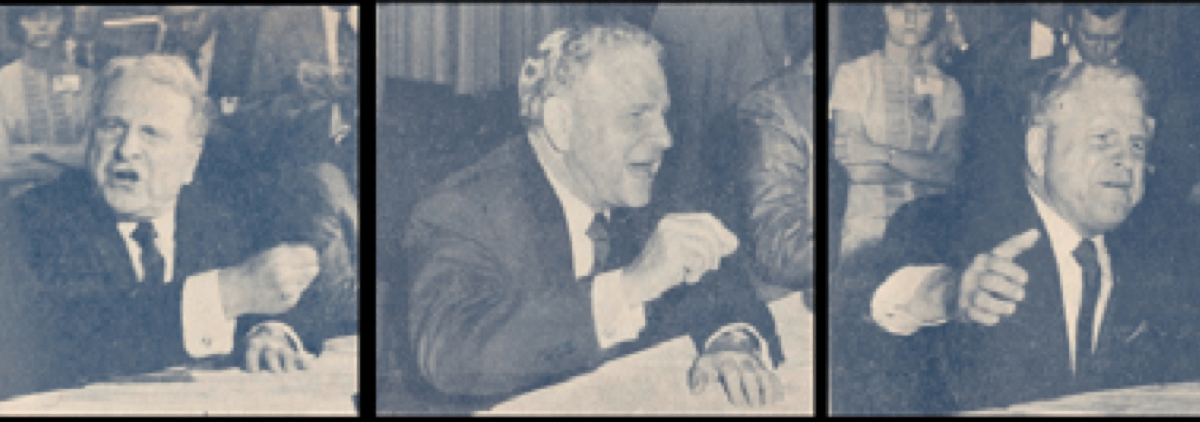W.A. Criswell would be so proud of the Southern Baptist Convention this week.
The man who once was the spokesman for why women should not — cannot — be pastors has reached peak influence 114 years after his birth. About how far back in time the SBC wants to go in its view of women.
While women are slowly advancing in most other areas of Western life, Southern Baptists are doing their best to push them back into the 19th century. The latest evidence came this week from the SBC Executive Committee, which voted to expel the denomination’s largest and most influential church because it — gasp! — ordained three female staff members and now has a female among its teaching pastors.
While the rest of America might wonder how this could be so offensive as to expel one of the denomination’s flagship churches — easily the congregation that has baptized more people and started more churches than any other SBC church — it makes perfect sense in the male-dominated world of today’s SBC.
“According to W.A. Criswell, allowing women to be ordained as pastors was one sure sign of creeping liberalism.”
That’s just what Criswell longed for in 1989 when he gave an interview to Bill Moyers for his TV special “The Battle for the Bible.” That was a decade into the so-called “conservative resurgence” that took control of the SBC and saved it from the perceived threat of liberalism. According to Criswell, who then was pastor of the nation’s largest SBC congregation, First Baptist Church of Dallas, allowing women to be ordained as pastors was one sure sign of this creeping liberalism.
‘Husband of one wife’
In that national TV broadcast, Moyers asked Criswell: “What is the biblical base for your position on the ordination of women?”
Criswell replied: “The Scripture says, you know, in 1 Timothy, chapter three, ‘For the bishop, the preacher, the elder, is to be the husband of one wife,’ and I say sarcastically, facetiously, if a woman can be the husband of one wife, ordain her, that’ll be fine. Just go ahead.”

W.A. Criswell preaching at a Southern Baptist Convention annual meeting
That clip was played on nearly constant loop for years afterward. And even though Criswell said he was being “facetious,” his view resonated with more conservative Southern Baptists and perfectly expresses the views of today’s SBC complementarians. (Quick primer here: Complementarians believe God created men and women to be of equal worth but for specifically different roles in church and home, and any role with the title “pastor” is reserved for men alone. They also believe men have authority over women in the home.)
Remember how Jesus said the love of money is the root of all evil? I’m not denying that, but it seems to me complementarianism also is the root of a whole lot of evil. Specifically, because complementarianism is about power, and the love of power definitely is another root of all kinds of evil.
“While the men who advance complementarianism want us to believe their doctrine came straight from the mouth of God, it did not.”
While the men who advance complementarianism want us to believe their doctrine came straight from the mouth of God, it did not. It is their (mis)interpretation of Scripture in order to continue a patriarchal culture featured prominently in the Hebrew Scriptures but not so strictly found in the Christian New Testament.
Others who are smarter than I have written at length about the biblical problems with complementarianism, so I won’t rehash that here. Go read Beth Allison Barr’s Making of Biblical Womanhood, and you’ll see why she’s the target of so much white male anger these days.
No errors in the Bible
To understand why Southern Baptist leaders are so terrified of women serving as pastors, go back to the interview between Moyers and Criswell.
Criswell: “There are no historical errors in the Bible. All that we know confirms the truth of the word of God.”
Moyers: You call yourself a literalist. How do you define that?
Criswell: “Yes. I just think the Bible literally is true. Just from the beginning to the end of it.”
Moyers: “Doctrinally?”
Criswell: “Yes.”
Moyers: “Scientifically?”
Criswell: “Yes.”
Moyers: “Historically?”
Criswell: “Historically, yes.”
Moyers: “In every way?”
Criswell: “In every way.”
After a brief dialogue about “liberalism,” Criswell made his case: “When the man starts going that way, it’s not long until he puts his Bible down and he picks up psychology and sociology and political science, and the Lord only knows what all. You’ve got to stay by that Bible and what it says, and if you ever turn aside from it, you’re going to tum into all of those other things. Now, that’s why you have the struggle in the convention; one or the other of us is going to prevail in this convention, ultimately. … I think if you don’t believe the Bible, you ought to quit the ministry.”
“What about that old Baptist doctrine that each of us is free to interpret the Scripture in submission to the Holy Spirit?”
Moyers then asked Criswell: “What about that old Baptist doctrine that each of us is free to interpret the Scripture in submission to the Holy Spirit?”
Criswell: “That is a ruse.”
Moyers: “A ruse?”
Criswell: “That’s a cover-up. That’s a — that’s a — a bowing out.”
Moyers: “How is that, Dr. Criswell?”
Criswell: “When I say that I believe in the literal meaning and in interpretation of the Bible, that it says what it means and means what it says, when I say that, I automatically bind myself to the authority of the Scriptures. That means I do not have the authority to take it and make it mean something else. And it speaks for itself, God saw to that, he didn’t write enigmas and unintelligible things in the Bible for us, he wrote them plainly and all I have to do is to read it and believe it and implement it in my life. And of course, for me, in my preaching.”
Moyers: “But I’m not prepared to have anyone say what the Holy Spirit is saying to me.”
Criswell: “If you will let the Holy Spirit say to you in your heart what I’m reading here in the Bible is the literal truth, and if the Holy Spirit is allowed to teach you that truth of God as you read the Bible, you’ll come out saying the same thing I do.”
Summary button
Then Moyers hit the summary button: “One journal a few years ago said that by the 1980s, the Southern Baptist denomination would (have) “a Criswellian soul.” Is that happening?”
Criswell: “Wouldn’t I love that!”
It took 44 years to confirm, but that Criswellian soul is alive and well in the SBC.
And to quote Criswell himself, it is a ruse.
The demand that if you read the Bible clearly you will understand it the way Criswell did is a ruse. It is a lie. It is a power play.
“The SBC is one of the few remaining Protestant denominations in America that hyperventilates over the role of women in church leadership.”
Millions of faithful Christians do not read the Bible the same was as Criswell and the leaders of today’s SBC. The SBC is one of the few remaining Protestant denominations in America that hyperventilates over the role of women in church leadership. All while claiming they have the one true interpretation.
And all while paying lip service to more serious threats such as the abuse of women and children in SBC churches and the denomination’s failure to respond to them. Thus, last week a prominent SBC pastor — who happens to be a complementarian — was forced off the SBC Abuse Reform Implementation Task Force for daring to say publicly the SBC should not remain “in fellowship” with churches that invited credibly accused sexual abusers to preach.
All while claiming to care about sexual abuse survivors but at the very same Executive Committee applauding a former Executive Committee president who presided over the mishandled reporting of abuse cases. But at least he has the right view on women as pastors.
Let’s return to the Moyers interview with Criswell.
Criswell: “Plainly, Bill, that is written in the Bible for the preacher, your pastor, is to be the husband of one wife.”
Moyers: “Should women not be ordained, then?”
Criswell: “No, sir, they should not be ordained.”
Moyers: “Should they not be in authority over men?”
Criswell: “No.”
Moyers: “What should a young woman do if she sincerely believes she’s been called by God to be a pastor in the Southern Baptist Convention?”
Criswell: “She is mistaken. God never called her. Her own personal ambition, or longing for recognition or a thousand other things lead her into that persuasion.”
Moyers: “What should she do? I’ve talked to some women who believe they have been called to be pastors.”
Criswell: “There are 10,000 ways that women can serve and serve effectively and beautifully. They do here in this church. The women actually run the church, there’s no doubt about that. My wife, these women, gracious alive, if I don’t get along with the women, I couldn’t pastor the church, I wouldn’t have a church. They exert an enormous influence in it, but they ought not to be the pastor and the preacher up there in the pulpit.”
Women of the SBC, you heard the man. You read it here. “The women actually run the church.” Seems like it’s high time to make your voices — and your callings — heard.

Mark Wingfield
Mark Wingfield serves as executive director of Baptist News Global. He is the author of the new book Honestly: Telling the Truth About the Bible and Ourselves.
Related articles:
I knew the truth about women in the Bible, and I stayed silent | Opinion by Beth Allison Barr
Southern Baptist Convention ousts its largest church, Saddleback, for having a woman pastor
Largest church in SBC ordains three women as pastors
As church staff roles evolve, the SBC is forced to define the word ‘pastor’ | Analysis by Mark Wingfield
Southern Baptists approve sexual abuse response and debate doctrinal parameters | Analysis by Mark Wingfield


